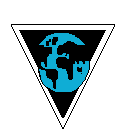|
|
|
|
 |
 |
 |
 |
 |
 |
 |
 |
 |
 |
 |
 |
 |
 |
 |
 |
 |
 |
 |
|
Dave Ancel, Ed.D. Concepts in Global Learning, Inc. |
|
|
|
Some Thoughts on Knowledge Generation |
|
|
|
There is much talk these days of knowledge in organizations how to create, capture, organize, and manage it, to name a few of the more common metaphors. While all this talk is beneficial in the sense that it encourages a new, and more positive, way of thinking about economic value the current conversation also limits us in its focus on knowledge as a product. There is an increasing reification of knowledge as a thing to be used to specific advantage. Some even argue, as Davenport and Prusak do in their new book Working Knowledge: How Organizations Manage What They Know, that too much knowledge cheapens its value much like any commodity. |
|
|
|
Conditions for Knowledge Generation |
|
|
|
All of this obscures a deeper and perhaps more interesting question: What are the conditions underwhich knowledge flourishes? Put the focus on the whole context or environment within which knowledge grows, not on the so-called product and its usefulness. I don't buy the idea, borrowed from economics, that knowledge is a commodity and that too much cheapens it. Unlike oil, trees, or food where the scarcity/abundance dicotomy is a driving force, knowledge generation creates a selective dynamic. You want the absolute maximum knowledge that your system can generate all the time, always and forever. Specific knowledge has different usefulness, so the selection process is critical to its eventual application. The driving force is not scarcity/abundance, it is application a more unifying concept. |
|
|
|
Knowledge Stories, Language, and Application |
|
|
|
How is that humans generate knowledge? We do it in language! Language is the medium in which we bring our varied experiences, histories, traditions, and cultures together and mediate them. It is this act of mediation that generates knowledge in any community. When we talk about the conditions that favor knowledge generation, we are talking about a linguistic domain of interaction that we share with other humans. The act of mediation leads to shared understandings, a common story, relative to the knowledge at hand. When together in communities of practice we create the plot of the story, so we select what is useful. In this way, the conditions of knowledge generation are inextricably linked to application. |
|
|
|
For more exploration on this topic, click to @brint.com and The Knowledge Ecology Network |
|
|
|
As always, e-mail your thoughts and comments and Ill respond. |
|
|
|

